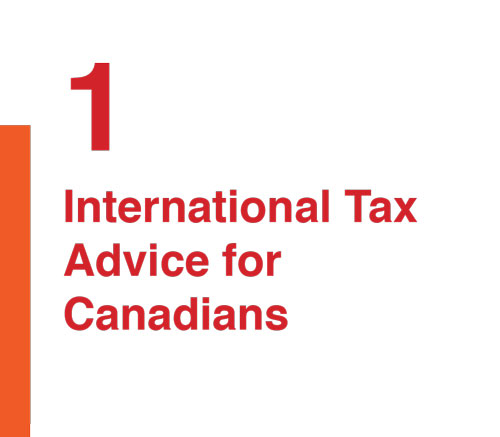
Whether you are an American moving to Canada, or a Canadian business expanding overseas, this guide is for you.
Doing Business in Canada?
Foreign companies that plan on doing business in Canada may have to pay Canadian income and sales tax. Also, they must file a Canadian tax return. These foreign companies are liable for Canadian income tax on the profits derived from Canada. Those that sell to Canadian customers must collect and remit sales or value-added tax.
Canadian Corporation Expanding Outside of Canada
There are a number of tax structures Canadians can use to expand to the United States.
(1) Limited Liability Corporations
(2) Limited Liability Partnership
(3) US C-Corporation
Taxation for Non-Resident Real Estate Investors
If you are a non-resident that has sold real estate in Canada, you must file a Request for a Clearance Certificate with the Canada Revenue Agency (CRA). By doing so, the


amount of tax withheld on the sale of your real estate in Canada might be significantly reduced.
Americans & Non-Residents Working in Canada
Non-residents, including Americans, working in Canada must file a Canadian personal tax return and pay Canadian income taxes on their Canadian employment income.
Canadians Working in the U.S. & Overseas
For Canadians working in the U.S. or overseas, there are a multitude of tax issues such as:
(1) Impact on Canadian residency status
(2) Departure return & departure tax
(3) Tax filing requirements for non-residents
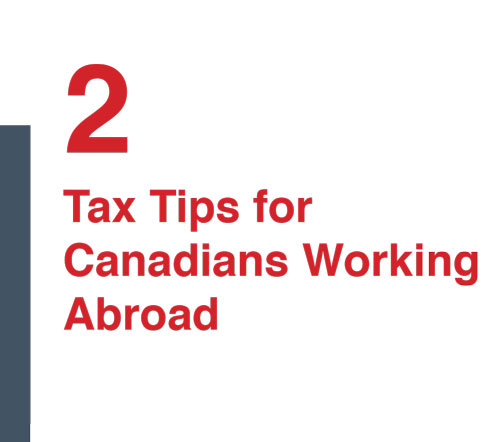
If you are a Canadian working abroad, permanently or temporarily, you should read this article.
Permanently Working Abroad, Overseas, Outside of Canada?
A Canadian who is permanently working overseas must determine their residency status. The CRA looks at three primary factors when determining one’s residency:
(1) The location of your permanent home
(2) Where your spouse and/or common law partner and child live
(3) Where you live
Six Things to do Before You Leave Canada
Now that you’re aware of what factors determine residency status, what happens when you leave Canada? There are six things you need to do before you leave:
(1) File Departure Tax Return
(2) Submit Form NR73 (optional)
(3) Stop Receiving Tax Credits
(4) Disclose All Assets
(5) Pay Departure Tax
(6) Talk to Your Financial Advisor


Filing Tax Returns in Canada for Canadians Working Abroad
After you leave Canada, you only have to file a tax return with the CRA under three circumstances:
(1) You earned employment income in Canada
(2) You carried on a business in Canada
(3) You disposed of taxable Canadian property
Tax Filing Obligations for Canadians Living Outside Canada
After you leave Canada, you will be subject to withholding tax at a rate of 25% on the Canadian income you receive. This includes interest, dividends, CPP, and RSP income.
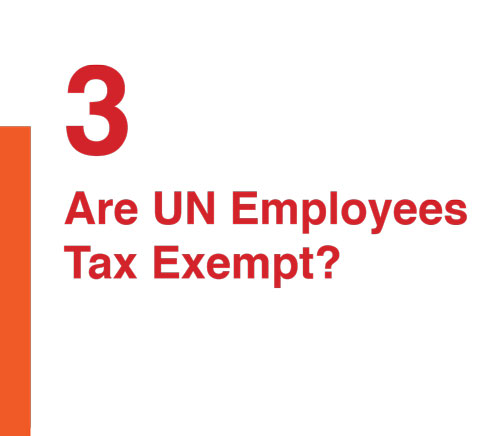
If you are a Canadian working for the United Nations (UN), you may be exempted from taxation on any income earned from the UN. The tax filing obligations will differ depending on if you are a resident or non-resident of Canada.
Generally speaking, any income that is earned from the UN can be received on a tax-free or a tax reduced basis in Canada. This depends on the specific convention between the UN and that specific country. There are different rules to follow depending on whether your employment is direct with the UN or with one of its affiliated bodies. You must have a clear written employment agreement to be considered an employee of the UN.
Deemed Non-Residents of Canada
If you are deemed to be a non-resident of Canada, then the United Nations tax convention with Canada will not apply to you. Thus, you will not be liable for Canadian income taxes on your UN earnings.
Deemed Residents of Canada
If you are deemed as a resident of Canada, then the income earned from the UN can be


exempted from tax in Canada. When you are preparing your Canadian tax return as a resident of Canada, report the amount you received from the UN on line 104. Also, report the same amount on line 256 as a tax deduction.
So Here’s the Tip
Canadian residents working for the UN must file a Canadian tax return and report their UN earnings.
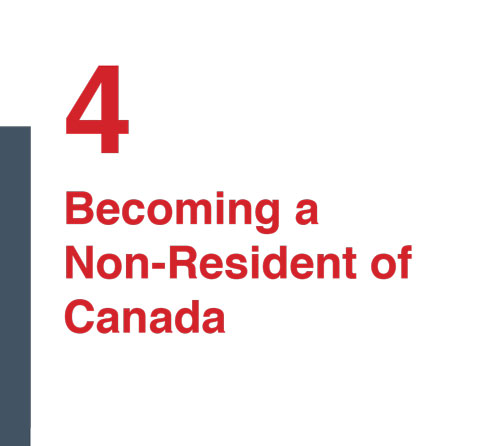
Are you considering leaving Canada to work, live, or retire abroad? If so, you will have to become a non-resident. This means you have to break all of your primary and most of your secondary ties to Canada.
Examples of Primary Ties
> A personal residence in Canada, which can be either rented or owned by you
> A spouse or common-law partner living in Canada
> Dependents living in Canada
Note, if you have a single primary tie to Canada, then you are a factual resident.
Examples of Secondary Ties
> Driver’s License
> Health Card
> Bank Accounts
> Memberships in Clubs
> Pension Plans, RRSPs, TFSAs
For secondary ties, think of it as a weighing scale. The more secondary ties you have, the heavier the scale, and the more likely it is that you will be considered a factual resident of Canada.
Form NR73
If you are leaving Canada, you have the option of filling out the Determination of Residency Status form (Form NR73) with


the CRA. By completing this form, the CRA will provide you with a notice of determination on your residency status. However, it may invite the CRA to scrutinize your current situation.
10 Tax Implications of Non-Residency
(1) Stop receiving Canada Child Benefit
(2) Stop receiving GST/HST Credits
(3) Repay Home Buyers Plan & Life Long Learning Plan
(4) TFSA Penalties
(5) Stop Contributing to your RRSP
(6) Inform Bank & Financial Advisor
(7) Disclose All Canadian Assets
(8) Deemed Disposition of Property
(9) Selling Your Home After Leaving Canada
(10) File Final Canadian Personal Tax Return
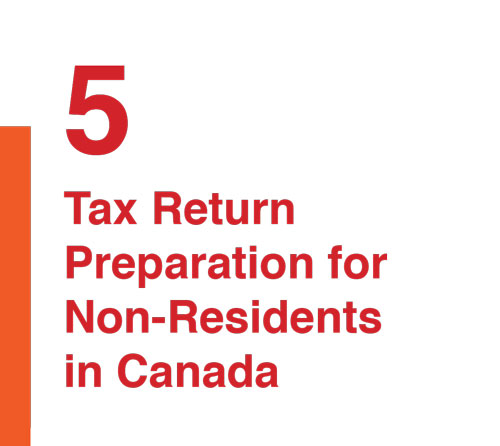
Non-residents that have any connection with Canada should be aware of their Canadian tax reporting requirements and liabilities.
When Are Non-Residents Liable for Tax in Canada?
Non-residents of Canada are liable to pay Canadian taxes if they:
(1) Were employed in Canada
(2) Carried on a business in Canada
(3) Disposed of taxable Canadian property
If any of these three situations apply, you should consult an accountant experienced in Non-Resident Canadian Tax Return Preparation.
Non-Resident that is Employed?
If you have earned employment income in Canada you must pay Canadian income tax. Canadian employment income is subjected to a graduated tax - where the rate of tax increases as the employment income received increases.
Non-Resident with Business in Canada?
If you are carrying on a business in Canada, you must file a Canadian tax return. If your non-resident business also has a


permanent establishment in Canada, the business must pay Canadian tax on the profits earned through the Canadian establishment.
Non-Resident with Real Estate?
If you dispose of Canadian real estate you are liable for tax in Canada on the profits made on the disposition/sale of that real estate.
Personal Tax Credits Available
Non-residents that earned 90% or more of their worldwide income in Canada are allowed to claim personal tax credits that are available to them. If one were to make less than 90%, they can only claim:
(1) Disability Amount
(2) Interest Paid on Student Loans
(3) Tuition Paid
(4) Donations & Gifts
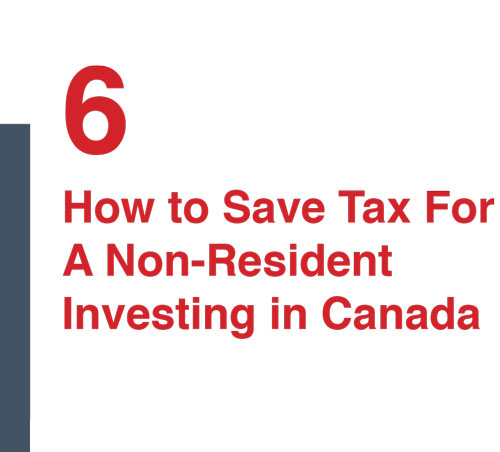
If you are a non-resident investing in the Canadian real estate market, there are tax tips that can help you save tax, maximize your benefits and avoid trouble from the CRA.
Know Your Tax Obligations
As a non-resident earning rental income from a Canadian property, you are required by the CRA to remit a withholding tax equaling to 25% of the gross rental income. This must be remitted on, or before the 15th day of the month following the month rental income was received.
Elect to File A Section 216 Return
You should consider filing a Section 216 return to receive a refund of the tax paid for the year. A Section 216 return takes into account the gross income and expenses incurred for the year and allows you to be taxed on the net rental income earned.
Keep Proof of All Your Expenses
You can claim all the expenses incurred in respect of earning rental income. This would help you to reduce your net rental income while increasing your refund.


Claim Depreciation to Maximize Refund
To maximize your refund, you can depreciate the building portion of your rental property. The benefit of this is that it helps reduce your taxable rental income. In the initial years of renting, the depreciation claimed may match the net rental income. Thus, you may get a refund that totals to the amount of tax you remitted to the CRA for the year.
File an NR6 to Reduce the Tax You Remit
A NR6 is an optional filing you may consider to help reduce the tax you are remitting to the CRA. It reports the estimated amount of gross rental income and expenses you expect to incur in the year. If approved by the CRA, you can remit the non-resident tax at 25% of the net rental income amount instead of the gross amount.

If you are a non-resident of Canada that is planning to sell or has sold Canadian real estate, you should be aware of the tax implications. Non-residents must pay a federal tax of 25% of the gross selling price on the sale of Canadian real estate to the CRA.
Selling Real Estate in Canada
Canadian real estate appears very unattractive and cost prohibitive. However, the federal tax of 25% on the gross selling price can be reduced to 25% of the capital gain earned on the sale of real estate in Canada. To have the reduced rate of tax apply, the seller must first apply for a Clearance Certificate, also known as Form T2062. It usually takes 4 to 6 months for the CRA to issue a Clearance Certificate. It will only be issued if payment of tax is made by the non-resident seller with the application for the certificate. This poses a practical problem because the seller may not have sufficent funds to remit to the CRA.
Liability for Tax
The Canadian purchaser is liable for the 25% tax on the gross selling price of Canadian real estate purchased from a non-resident of Canada. As such, the


Canadian purchaser will usually withhold 25% from the gross selling price, until the CRA provides the purchaser with the Clearance Certificate.
Filing Tax Return for Sale of Real Estate
At the end of the year, the non-resident seller must file a Canadian income tax return to report the profit earned on the sale of their Canadian real estate. Taxes that have already been remitted to the CRA will be credited on the tax return filed. Usually, a non-resident of Canada will receive a tax refund because of personal tax credits that are granted to them.
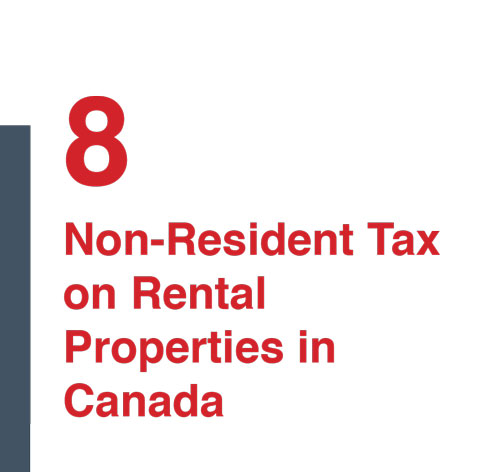
If you are a non-resident of Canada who owns real estate, you should be aware of the imposed taxes. The first thing you need to know is how to obtain a tax account number. This is important because it is used to track your filings by the CRA. Your social insurance number (SIN) will serve as your tax account number. If you do not have a SIN, simply call the International Tax Services office.
Withholding Tax
This applies at a rate of 25% on the rent that has been collected in Canada. For instance, assume you are renting a condo and you are collecting $3,000 as rent towards it. The withholding tax will be 25%; or $750 for the month which must be remitted by the 15th of the following month.
The Waiver
In fact, 25% withholding rate is high. By filing a NR6 or The Waiver, you can reduce the withholding tax to a lower rate. On the Waiver, simply disclose the expected gross rent you plan on collecting as well as the expected expenses you plan on having in the next twelve months. You will then owe a monthly tax equal to 25% of the estimated net monthly profit.


The NR4 Slip
An NR4 Slip reports the gross rent you collected and the total withholding tax that you remitted to the CRA. You have to file this form with the CRA no later than March 31st of the following year. If it is not filed by this time, a penalty will occur.
Annual Tax Returns
The Section 216 Non-Resident Tax Return for Rental Properties is simple, you could either hire a professional to take care of it or do it yourself. It discloses the gross rents collected and the expenses incurred such as:
> Property Tax
> Repairs & Maintenance
> Utilities
> Insurance
> Condominium Fees
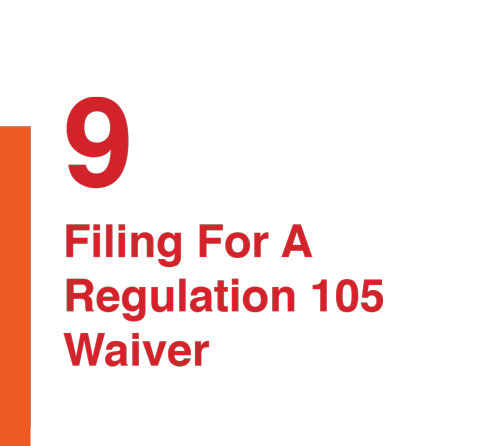
Non-residents of Canada are subjected to a 15% withholding tax. This tax can be reduced or completely eliminated by filing a Regulation 105 Waiver. This waiver is intended for self-employed individuals as well as Corporations, LLCs, partnerships, and joint ventures. This waiver can be filed under two scenarios:
Scenario 1
The most common scenario is to file a Treaty-Based Waiver, requesting relief under Regulation 105. This is based on the absence of a fixed place or permanent establishment in Canada.Treaty-Based Waivers are granted if three specific requirements are met:
(1) The Length of the Contract
(2) The Income Earned
(3) Other Criteria
Scenario 2
A non-resident who does not qualify for Treaty-Based Waiver can still request a reduction of taxes under Regulation 105 by providing an estimated statement of income and expenses from the contract. A non-resident may claim expenses against Canadian sourced income with the


resulting net income being taxed at a regular Canadian tax rate, instead of 15%. A non-resident will benefit if the estimated tax owing is less than 15%.
In the case of either scenario, supporting documentation must be submitted with the waiver application. The waiver application should be filed at the CRA office, closest to where the services are being provided. The processing of the waiver can take up to 30 days. The reduced withholding tax rate will only apply once the waiver is actually approved. Filing a waiver application does not replace the need to file a tax return.
So Here’s the Tip
If you are a non-resident of Canada and expect to perform services in Canada - file for a regulation 105 waiver.
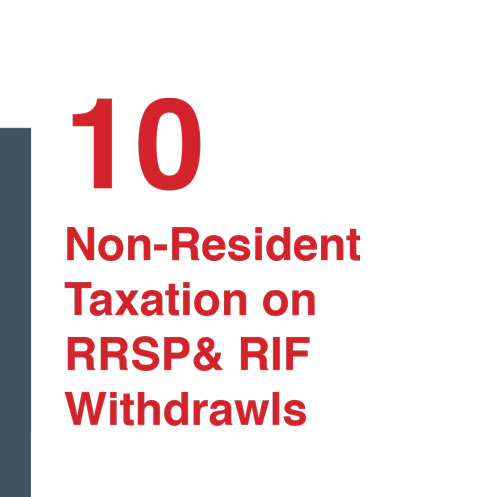
For non-residents, there are a few ways that taxes can be reduced on your RRSP and RIF withdrawals.
Withholding Tax Rate
Generally speaking, the withholding tax on RRSP and RIF payments made to non-residents of Canada is 25%. However, this rate can be reduced by virture of a treaty between Canada and your country of residence.
Section 217 Tax Return
The withholding tax paid is generally the tax payer’s final obligation to the CRA. However, you can elect to file a tax return with the CRA under Section 217 of the Income Tax Act with the goal of getting some of your withholding taxes back. If the tax calculated, as per the Section 217 return, is lower than the 25% withholding tax, then this return will be benefical as the excess will be refunded to you.
Filing Due Date & Address
The Section 217 tax return is due by June 30th of the following year. However, if there is a balance owing, it is recommended


that you pay and file by April 30th to avoid interest from accuring. The return is filed with the International Tax Services Office.
Form NR5
Another way to reduce the withholding tax is to file form NR5 with the CRA. Based on the information, the CRA will assess whether they can instruct the payer to reduce the withholding taxes taken from your payments. An approved NR5 form is valid for up to five taxation years. However, it requires you to file a Section 217 return every year.
So Here’s the Tip
If you are a non-resident of Canada tired of paying high taxes for RIF and RRSP withdrawls, consider filing a Section 217 tax return and NR5 form.
About the Author

Allan Madan is a CPA, CA, and international tax expert. He is a graduate of the University of Waterloo where he earned a Masters Degree in accounting. He enjoys working with business owners, entrepreneurs and individuals. Allan has over 10 years of experience in public accounting. Prior to founding Madan Chartered Accountant in Mississauga, he worked for the Deloitte firm where he was the International Tax Manager. He has completed Parts 1 and 2 of the Canadian In Depth Tax Course, which is the most comprehensive tax training in Canada.
About the Company

At Madan Chartered Accountant, we know how important the experience is. We also know how critical it is to have someone in your corner that knows your unique situation. Your taxes are important to us, because they are important to you. Our knowledgeable and friendly staff will always take the time to go the extra mile. Among all the accounting firms in Mississuga, we’re special. Our unique size enables us to answer the most complex of problems, yet provide personal attention to all our clients.
Contact Us:
Address:
145 Traders Boulevard East, Unit 20
Mississauga, ON L4Z 3L3
Phone: (905) 268-0150
© 2018 Madan Chartered Accountant Professional Corporation. All Rights Reserved.
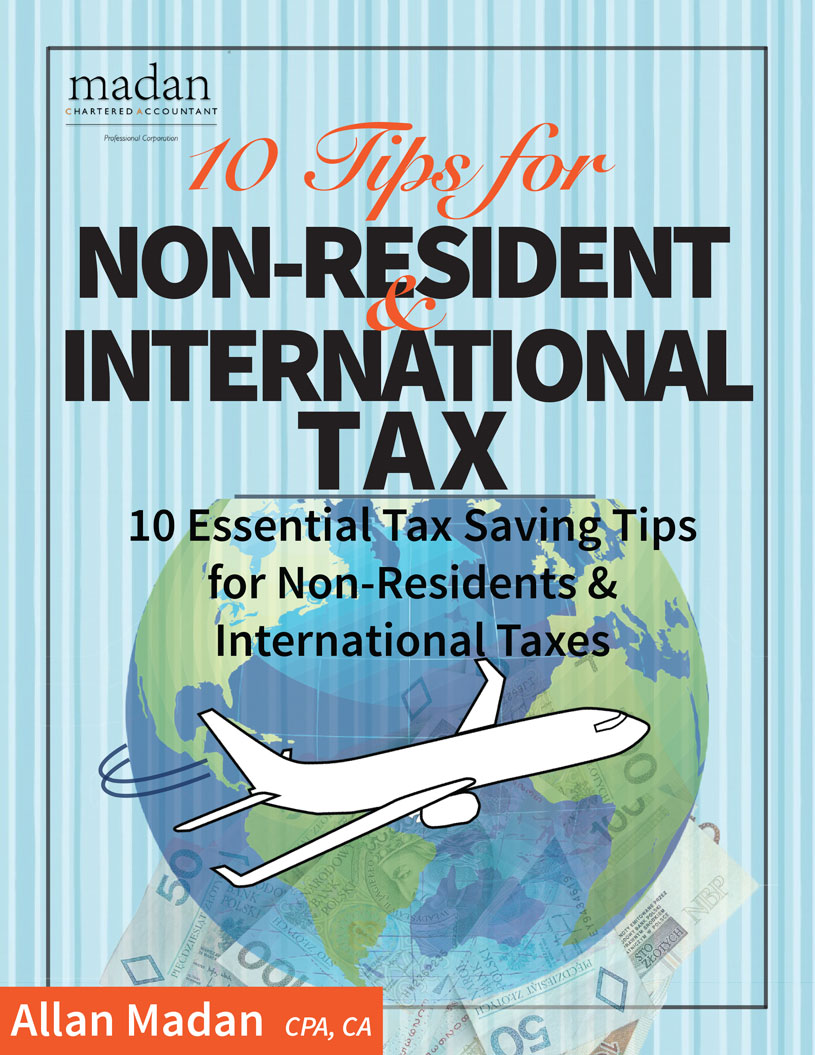
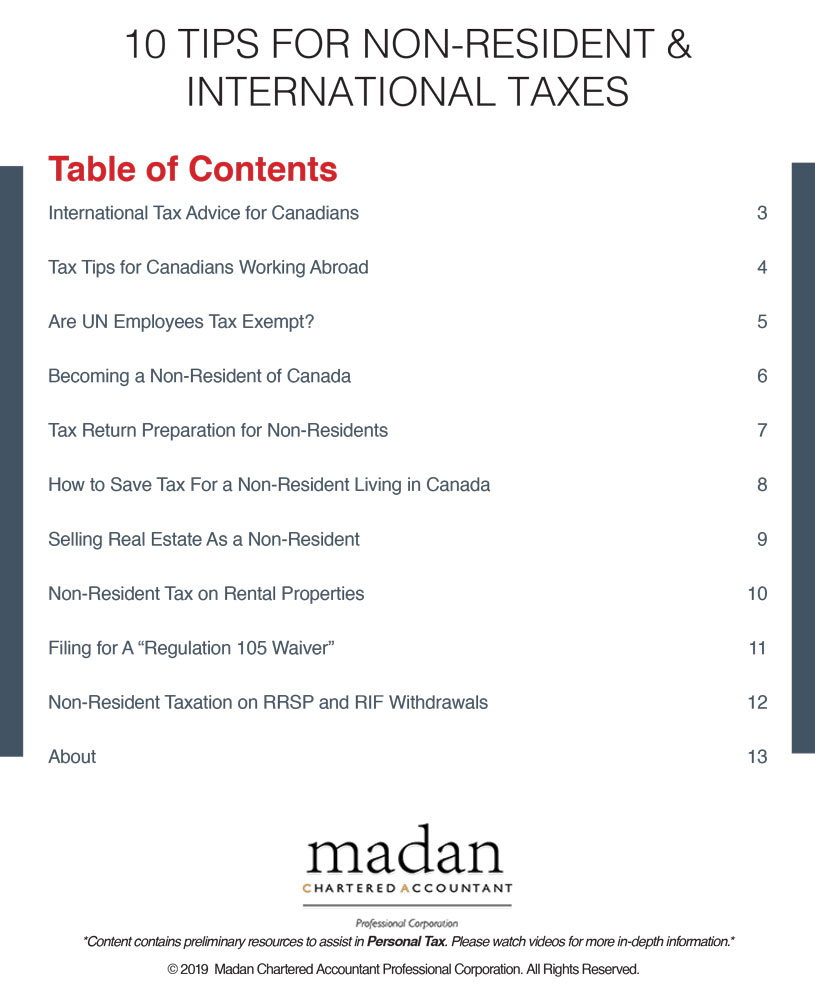

SOCIAL CONNECT